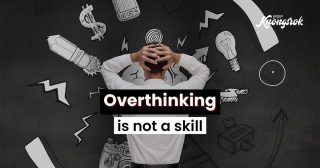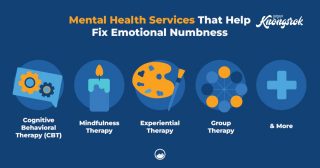When Life Feels Empty: How to Cope with Emotional Numbness
When Life Feels Empty: How to Cope with Emotional Numbness
There are days when you don’t feel sad, happy, excited, or even angry — you just feel… nothing. It’s like floating through life without purpose, watching things happen around you but feeling disconnected from it all. If you’ve felt this way, you’re not alone. Emotional numbness is real, and it’s more common than you think.
In this article, we’ll explore what causes emotional numbness, how it shows up, and what you can do to slowly reconnect with your feelings and life again.
What Is Emotional Numbness?
Emotional numbness is the inability to experience emotions — good or bad. People often describe it as:
Feeling like a robot
“Living in grayscale”
Being unable to cry or smile
Disconnection from the world, others, and even themselves
It’s not laziness or weakness. It’s your brain and body putting up a wall — a defense mechanism — to protect you from emotional overload.
Common Causes
You may feel emotionally numb because of:
1.
Depression or Anxiety
These conditions can shut down emotional processing as a form of protection. You may feel like your mind is “foggy,” and nothing matters.
2.
Stress or Burnout
When you’re constantly under pressure — work, relationships, finances — your nervous system can go into survival mode, suppressing emotions.
3.
Trauma
Past emotional wounds, grief, or abuse can create numbness. It’s a way your brain tries to cope with pain too overwhelming to process.
4.
Medication
Some antidepressants or psychiatric medications may blunt emotional range. If you’re unsure, speak to a healthcare provider.
Signs You Might Be Numb
You don’t react emotionally to big life events
You can’t cry even if you want to
You feel “flat” or indifferent all the time
Hobbies or people you once enjoyed now feel boring
You feel detached from your body or thoughts
Why It’s Dangerous to Ignore
Emotional numbness can create a false sense of “calm,” but underneath, it may be blocking unresolved pain. Over time, this can lead to:
Difficulty forming or maintaining relationships
Poor decisions due to lack of emotional feedback
Risk of depression worsening
Substance use to “feel something”
How to Start Feeling Again
1.
Accept How You Feel
It might sound strange, but start by saying to yourself:
“Right now, I feel numb. That’s okay. I don’t have to fix it immediately.”
Judging yourself only deepens the disconnection.
2.
Do One Gentle Thing a Day
Even if you don’t feel anything, engage with life in small ways:
Take a walk outside
Listen to music from your childhood
Pet an animal
Light a candle and just sit
Reconnection begins with routine, not emotion.
3.
Name Your Numbness
Try journaling:
When did it start?
What changed in your life?
What are you avoiding?
Sometimes, putting words to the fog makes it lift — even slightly.
4.
Talk to Someone
A therapist, a trusted friend, or even anonymous support online. You don’t have to explain everything. Just saying “I feel nothing, and I don’t know why” is a powerful step.
5.
Be Patient With Yourself
It took time to become numb. It will take time to feel again. Healing is not about rushing back to joy. It’s about slowly coming back to yourself.
You Are Not Broken
Feeling numb doesn’t mean you’re broken. It means you’ve been through a lot, and your body is protecting you the only way it knows how. The fact that you’re reading this shows strength — not weakness.
You don’t need to force emotions to prove you’re alive. You are already enough, just as you are, even if you feel like nothing at all.
Final Thoughts
Life will not always feel this empty. There will be moments — even small ones — that remind you that you can feel again. A song, a memory, a smile from someone unexpected. You don’t have to rush. Just keep showing up for yourself.
Even when it’s hard.
Even when it’s silent.
Even when it’s numb.
Want more gentle, honest content like this? Stay with us at SadLife.me — where we write what others are afraid to feel.





